 WL Central will be updating news on Palestine, with new items added at the top. You can contact me on twitter @GeorgieBC or by email at admin@wlcentral.org.
WL Central will be updating news on Palestine, with new items added at the top. You can contact me on twitter @GeorgieBC or by email at admin@wlcentral.org.
Current time and date in Gaza:
WEDNESDAY, March 16
Demands from protesters in Manara square:
There have been many Twitter reports, both today and yesterday, of threatening texts from unknown numbers sent to all Gaza phone numbers and warning them to not attend protests or they would be killed.
Yesterday WL Central reported what seemed to be conflicting reports of assaults by Fateh officers and Fateh officers offering food to the protesters. The offers of food are being interpreted as an attack on the hunger strikers resolve and chants today include "No falafel! No cola!" President Abbas sent four jeeps full of food today, to divided reception.
Police are assisting in keeping the Fateh and March 15 groups from attacking each other in Bethlehem and broke up multiple fights today. According to Ma'an News reports, the Fateh group seems torn between disrupting or joining the protests.
From @PalYouthVoice:
"#March15Ramallah hunger strikers are up to 25 now, spirits are high and we're determined to go all the way to the end"
"things are back to normal, Fateh members helped to contain the thugs that attacked us"
As protesters attempted to gather on March, 16 morning in Al Kateeba sq, dozens of thugs (with sticks and clubs) cracked down on the crowd chanting for unity and raising the Palestinian flag to disperse them.
At least 10 students were taken to the hospital today and around 20 were arrested after Hamas plain clothes police and security forces arrived at Al Azhar university and beat up students and blocked anyone from entering or leaving the grounds. Many of the students were planning on attending today's unity rallies. A spokesman for the Hamas-run interior ministry denied that police had entered the university. "What happened at the university was a problem between students," Ihab al-Ghussein told AFP.
The New York Times has received second-hand reports that 4 of its journalists have been "swept up by Libyan government forces" from Ajdabiya. The reports remain unconfirmed, however. The missing journalists are photographers Tyler Hicks and Lynsey Addario, reporter and videographer Stephen Farrell and Anthony Shadid, Beirut bureau chief and Pulitzer Prize winner.
The last contact received from the journalists was on Tuesday morning (ET).
As Jeremy Peters highlights in his Mediadecoder blog entry,
The Times, like many news organizations, has procedures in place to carefully track its journalists’ whereabouts in war zones and areas of conflict. Susan Chira, foreign editor of The Times, said that each night editors discuss plans for the following day with their correspondents, who are expected to check in regularly.
“We expect to hear from them several times a day — and so do their colleagues in the field, who are often our early warning system of any trouble,” Ms. Chira said.
Executive editor Bill Keller said in a statement,
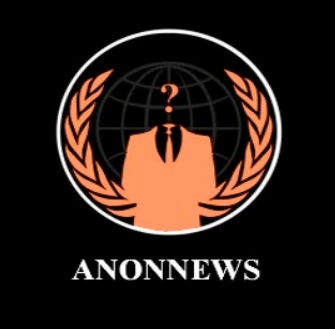 An “open letter” from the ex-Bank of America employee was recently posted on the website Anonymous has been using to share the leaked emails. It appears to be in response to how he was characterized in coverage of the leak.
An “open letter” from the ex-Bank of America employee was recently posted on the website Anonymous has been using to share the leaked emails. It appears to be in response to how he was characterized in coverage of the leak.
TechHerald.com has focused on this comment, which he wrote in response to a question from Anonymous on whether he had more emails: “I have to save the rest. I promised a WSJ [Wall Street Journal] reporter in Australia the story back in Jan when the Balboa sale was announced. I also need to keep a few aces for my inevitable years of litigation for what I’m doing.”
Today, Anonymous published a letter from him. It suggests he may not be so focused on profiting off his information after all.
He thumps his chest at Bank of America saying Bank of America continues “to underestimate me.”
“I’ve already read their plan of action against me. Anonymous leaked it for the world to see months ago,” he adds. “While “Anonymous” BofA executives huddle together and cower behind their corporate logo, hoping their corporate name can withstand a greater shitstorm than mine, we’ve both been reading the exact same battle plan. Don’t be fooled by press releases. The HB Gary plan cost a lot of the money from their piggy bank, and they’re not ones to let their own money go to waste.”
He suggests he is not afraid of Bank of America executives or employees who might be plotting against him:
 Russian nuclear accident specialist Iouli Andreyev, who helped with cleanup in the aftermath of Chernobyl, said on March 16, “The Japanese were very greedy, and they used every square inch of the space. But when you have a dense placing of spent fuel in the basin, you have a high possibility of fire if the water is removed from the basin.” His comments came as Japan faces a growing nuclear disaster with nuclear reactors leaking and radiation plumes discharging into the atmosphere.
Russian nuclear accident specialist Iouli Andreyev, who helped with cleanup in the aftermath of Chernobyl, said on March 16, “The Japanese were very greedy, and they used every square inch of the space. But when you have a dense placing of spent fuel in the basin, you have a high possibility of fire if the water is removed from the basin.” His comments came as Japan faces a growing nuclear disaster with nuclear reactors leaking and radiation plumes discharging into the atmosphere.
Andreyev put the blame on corporations and United Nations' International Atomic Energy Agency, saying they had “willfully ignor[ed] lessons from the world's worst nuclear accident 25 years ago to protect the industry's expansion.” He condemned the nuclear industry for ensuring Chernobyl was not studied properly.
Japan has been scrambling to contain a nuclear catastrophe ever since an 8.9 earthquake struck last week. As of Wednesday, March 16, a helicopter was unable to drop water on “the most troubled reactor” in the country. Workers left the power plant briefly as radiation levels increased.
In 2007, twelve power companies “admitted to thousands of irregularities in reporting past problems.” Japanese citizens began to resist the building of new nuclear reactors. They pushed for legal actions to suspend operations. Now, US State Cables released by WikiLeaks, which are being published by the Telegraph and The Guardian, further affirm that some sort of coverup has been going on.
 Syria's day of rage was originally scheduled for February 5, but no protesters showed up. On February 15, we reported the arrest of a teen blogger and speculated that the patience of the Syrian people which president Bashar al-Assad was assured would protect his country from protests may soon wear thin. On February 18, we asked, Did Syria run out of patience? as a protest broke out over the beating of a man by police. Since then it has become clear that Syrians have reached a slow boil. This time, on the announced protest day of March 15, Syria was unmistakeably in the streets of Damascus and Aleppo. The facebook page has announced another protest tomorrow, beginning at 12 noon, in all Syrian cities. Reuters announced 40 protesters, but the videos below show far more.
Syria's day of rage was originally scheduled for February 5, but no protesters showed up. On February 15, we reported the arrest of a teen blogger and speculated that the patience of the Syrian people which president Bashar al-Assad was assured would protect his country from protests may soon wear thin. On February 18, we asked, Did Syria run out of patience? as a protest broke out over the beating of a man by police. Since then it has become clear that Syrians have reached a slow boil. This time, on the announced protest day of March 15, Syria was unmistakeably in the streets of Damascus and Aleppo. The facebook page has announced another protest tomorrow, beginning at 12 noon, in all Syrian cities. Reuters announced 40 protesters, but the videos below show far more.
From our previous coverage there are some reasons why the protests are necessary, for more graphic reasons see the last video below. Approximately 10,000 political prisoners are currently being held in Syrian jails. A national state of emergency has been in effect in Syria continuously since 1963 and it is consistently used to suppress and punish any dissent. According to Amnesty International's report on Syria for 2010, "Critics, human rights defenders, alleged opponents of the government and others were detained, often for prolonged periods; some were sentenced to prison terms after unfair trials. Torture and other ill-treatment remained common, and were committed with impunity; there were several suspicious deaths in custody. The government failed to clarify the circumstances in which [17 prisoners and five others] were killed at Sednaya Military Prison in 2008 and, again, took no steps to account for thousands of victims of enforced disappearances in previous years. Women faced legal and other discrimination and violence. The Kurdish minority remained subject to discrimination, and thousands of Syrian Kurds were effectively stateless. At least eight prisoners were executed."
WL Central continues its updates on Yemen, with new items added at the top. All times are based off of Sanaa time in Yemen. You can contact me on Twitter @kgosztola or by email at kgosztola@hotmail.com.
Current time and date in Sanaa:
Tuesday, March 15
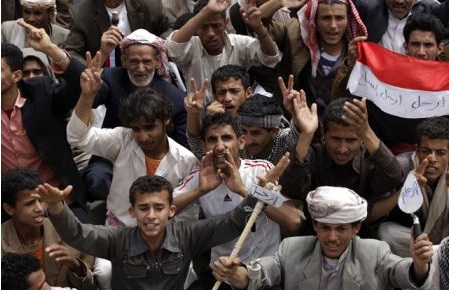 9:22 PM Journalist Iona Craig files this firsthand report on covering the uprising in Yemen Craig’s report details the worsening conditions for not just the people of Yemen but also journalists:
9:22 PM Journalist Iona Craig files this firsthand report on covering the uprising in Yemen Craig’s report details the worsening conditions for not just the people of Yemen but also journalists:
I crept home to my bed, exhausted after two busy days of covering the sudden upsurge of violence in the capital. Unlike the previous two mornings my wake up call was not an early morning text message telling of gunfire, attacks or impending violence from activists at the university encampment, now the centre stage of the anti-government protests, but this time came from friend and fellow journalist Laura Kasinof.
Armed police had raided the house I’d left just a few hours earlier, arresting four journalist friends. During the next few frantic calls to contacts with friends in high places their location remained a mystery. The political security and police denied they had them and still hours later the British embassy had no idea where they were being held. Then reports came through that they were at the Immigration Authority, but would be released and given a few days to sort out their paper work. Moments later these hopes were dashed when they were spotted at the airport.
The journalists deported were: “Oliver Holmes (Wall Street Journal, Time) Portia Walker (Daily Telegraph, Washington Post) Haley Sweetland Edwards who had returned to Yemen for a few weeks, (Los Angeles Times, Atlantic) and Joshua Maricich, a climbing enthusiast, photographer and researcher who had recently written a government supported book on Yemen.”
 Several writers have published their thoughts on the bank employee emails posted by Anonymous. They appear to have been caught up in the news cycle, hoping to get ahead of this story and get the most traffic to their post. In rushing the story, at least a few have committed a basic failure of journalism, one that could easily be remedied by fact checking.
Several writers have published their thoughts on the bank employee emails posted by Anonymous. They appear to have been caught up in the news cycle, hoping to get ahead of this story and get the most traffic to their post. In rushing the story, at least a few have committed a basic failure of journalism, one that could easily be remedied by fact checking.
Juli Weiner at VanityFair.com writes, “A-ha! Bank of America is indeed the large United States bank whose internal documents and e-mails were rumored to soon appear on the Internet. But twist! The leaker of those documents was not WikiLeaks’ Julian Assange, spectral nuisance and folk hero, but Anonymous, the rabble-rousing hacking collective.”
Angela Orr on Technorati writes, “Alluded to by the Anonymous community for months, leaks of Bank of America documents have finally begun to come to light, as the so-called #BlackMonday Operation began, today.”
And, at ComputerWorld, Darlene Storm writes, “It's unclear whether part one of the bankofamericasucks leak is the same information that BofA was afraid WikiLeaks would publish.”
Actually, it is incredibly clear. Look at the dates: they are all from days ago, the first one being sent out on March 10, 2011. This makes it impossible for Anonymous to be leaking whatever material WikiLeaks happens to hold.
Measuring the Possibilities: Unlikely, although sharing critical conditions that ignited revolutions in Arab nations
Possibilities of ‘North Korean Jasmine Revolution’ based on similarities and differences between the revolution-flaming countries and North Korea, with a glance on the country’s current IT environment, are discussed here.
Similarities:
-Grievances among young soldiers due to decades of food crisis
-High percentage of the youth among the population
Food crisis has been a chronic, serious problem in North Korea since the 1990s’ infamous famine which had taken about 2.8 million lives. The crisis has caused not only huge annual deaths by starvation but also widespread malnutrition which makes the people extremely prone to illnesses and epidemics that almost always lead to death. According to the Report of 2010 published by Amnesty International, about 9 million people suffered ‘severe food shortages’ in the year. International food aids, including the emergency operation of World Food Program, have dropped violently after the series of nuclear weapon tests.
Working in the national army has been one of the most honored jobs in North Korea. However, the army has failed to escape the wave of nationwide food shortage; there have been brigade-scale disobedience inside the army, including the officially reported one from the 47th brigade in Hwanghae district working on nuclear project, calling for enough food.
Would revolutions and movements in North Africa and Middle East be able to fuel similar ones toward democracy in North Korea? After the fall of Hosni Mubarak, North Korea’s already harsh censorship has been intensified against the use of mobile phones to block any news about the topic. However, amid the growing grievances due to desperate food crisis, small-scale protests have burst out around the country recently. Part one will roundup what’s reported so far about North Korea in relation with the effects of the revolutions.
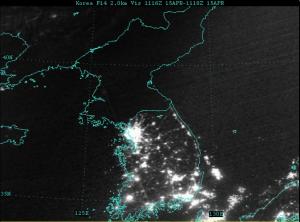
A nighttime satellite photo of the Korean peninsula, showing almost no sign of electricity provided in the North.
Source: DailyTech
Spreading and blocking the news; an ongoing battle
North Korean defectors and South Korean military have tried to send news to the North, including news of recent revolutions, by millions of air-drop leaflets. Such attempts became politically sensitive actions which attracted many criticisms, including worries that the action might lead to another bombing similar to the one that hit the Yeonpyeong Island last November. On 27th February, North Korea sent an official notification in the name of the North’s chief delegate to inter-Korean general-level military talks, warning that it would ‘fire aimed shots’ against ‘the spots of propaganda’(Source). North Korea was reported to not have broadcast anything about the revolution in Egypt until at least the 22nd of February.
North Korean defectors secretly distribute 'Stealth USB' to the North
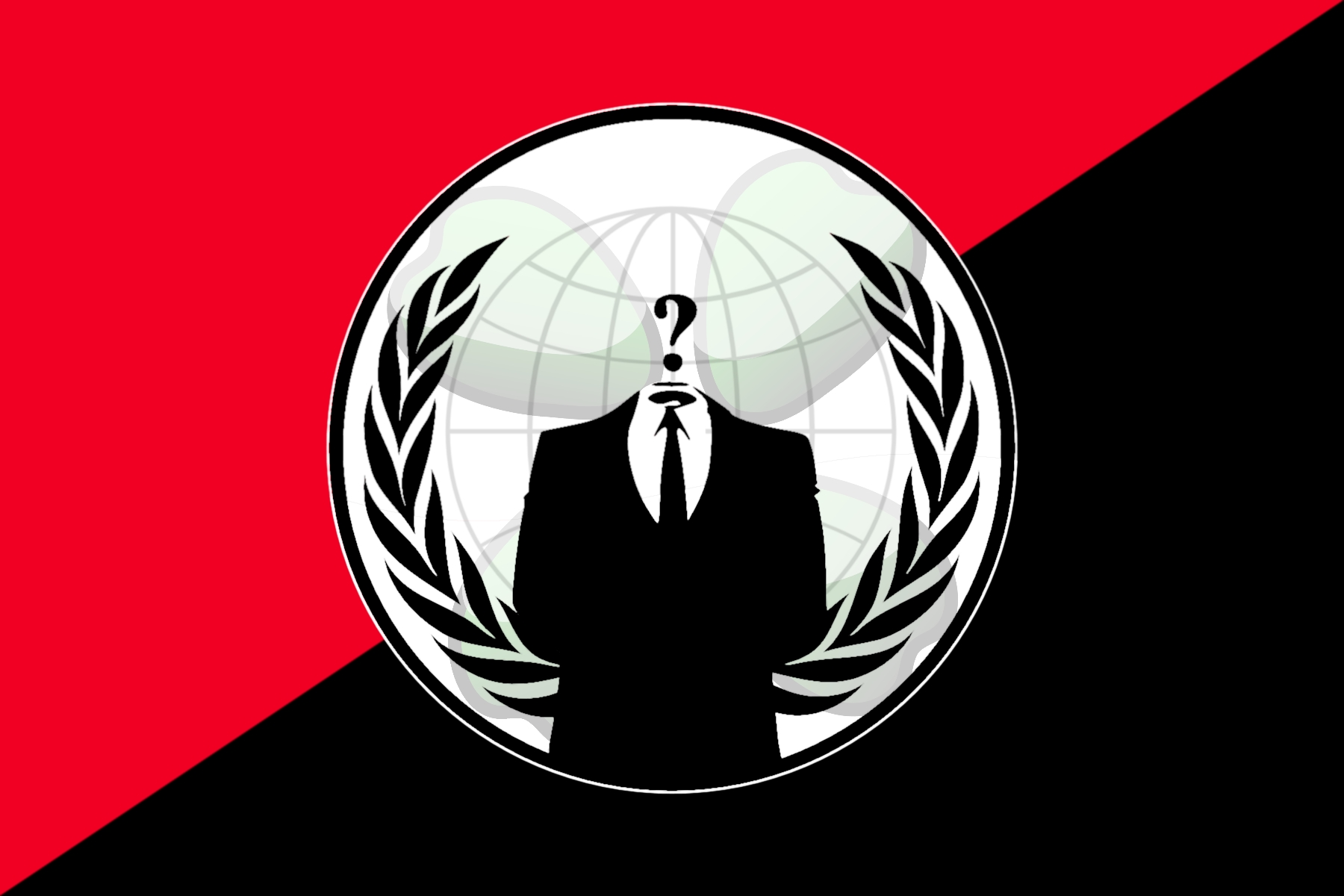 Anonymous, the hacktivist group known for supporting WikiLeaks and mounting actions in cyberspace in defense of freedom of information and transparency, launched “#BlackMonday” at midnight. Emails between an Anonymous user and an employee with Balboa Insurance, whose work is connected to the operations of Bank of America, were posted.
Anonymous, the hacktivist group known for supporting WikiLeaks and mounting actions in cyberspace in defense of freedom of information and transparency, launched “#BlackMonday” at midnight. Emails between an Anonymous user and an employee with Balboa Insurance, whose work is connected to the operations of Bank of America, were posted.
The employee claims to have worked for the company for the last seven years. He writes, “Many of you do not know who Balboa Insurance Group (soon to be rebranded as QBE First by Australian Reinsurance Company QBE according to internal communication sent to all Balboa associates) is, but if you’ve ever had a loan for an automobile, farm equipment, mobile home, or residential or commercial property, we knew you. In fact, we probably charged you money…a lot of money…for insurance you didn’t even need.”
Emails from the employee allegedly affirm suspicions that banks like Bank of America have been engaged in rampant fraud. But, the bigger story here is Anonymous has made contact with an employee at Balboa Insurance and opened up a conduit for getting information out to the world. He appears intent to push others to blow the whistle of Bank of America fraud.
In an email sent on March 11, 2011 at 7:06 pm, the Balboa Insurance employee writes about a key strategic issue that Anonymous faces in its campaign to take down Bank of America for its disingenuous and fraudulent dealings (particularly a campaign that began when the bank announced it would cease to process donations to WikiLeaks).
The spokesman for the Department of State in the Obama administration, PJ Crowley, resigned today for having criticized the inhumane treatment of U.S. political prisoner Bradley Manning as "ridiculous and counterproductive and stupid."
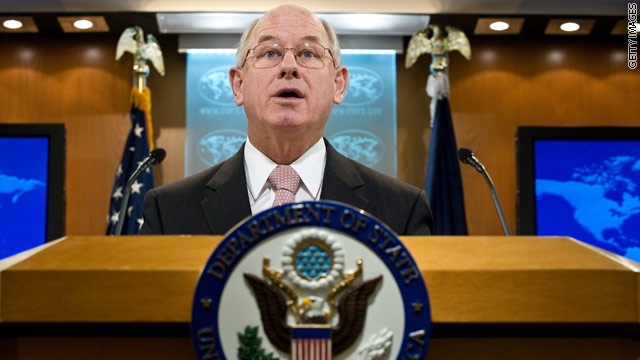 |
Commentary in TIME and Politico strongly suggest that Crowley's resignation was a forced move by an administration that does not bear internal criticism. Politico indicates that insider sources have been heralding the replacement of Crowley - with NSC spokesman Mike Hammer - for a long time, and that the Manning incident allowed this to be expedited. Crowley has publicly expressed his pleasure that Hammer will replace him on his twitter account.
Late last week, commentators on the treatment of alleged whistleblower Bradley Manning were surprised when Crowley unequivocally criticized the Department of Defense at a small seminar in MIT on new media. An attendee reported his statement:
 UPDATE: Unedited podcast is posted.
UPDATE: Unedited podcast is posted.
This week’s guest is Debra Sweet. She is the Director of World Can't Wait, initiated in 2005 to "drive out the Bush regime" by repudiating its program, forcing it from office through a mass, independent movement and reversing the direction it had launched. Based in New York City, she leads World Can't Wait in its continuing efforts to stop the crimes of our government, including the unjust occupations of Iraq and Afghanistan and the torture and detention codes, as well as reversing the fascist direction of U.S. society, from the surveillance state to the criminalization of abortion and immigrants.
Her writing can be read here. Her latest piece is “Nakedness, Justice and Bradley Manning.”
To mark the eighth anniversary of the Iraq War, Sweet discusses some of the revelations that have come from WikiLeaks on the Iraq War thanks to Cablegate and the Iraq War Logs and the "Collateral Murder" video.
Sweet addresses how WikiLeaks revelations on the wars are fueling antiwar resistance in America. She will highlight upcoming actions on March 19 and 20 in the United States to oppose ongoing US wars and occupations and to support Bradley Manning, the alleged whistleblower being held at Quantico Marine Brig in Virginia.
Following Sweet’s interview, some time was spent doing a roundup on some of the past week’s news related to WikiLeaks. The milestone that was reached this week, the 100th Day of Cablegate, was recounted.
To listen to the podcast, click play on the widget below. Or, go to CMN News.
 Federal Magistrate Judge Theresa C. Buchanan ruled the “Twitter 3,” who have become ensnared in a WikiLeaks investigation, cannot keep the US government from looking at their Twitter information and the information they would like to be public cannot be disclosed. With support from the ACLU and the Electronic Frontier Foundation, Jacob Appelbaum, Birgitta Jonsdottir, and Rop Gonggrijp, the three, will appeal the decision.
Federal Magistrate Judge Theresa C. Buchanan ruled the “Twitter 3,” who have become ensnared in a WikiLeaks investigation, cannot keep the US government from looking at their Twitter information and the information they would like to be public cannot be disclosed. With support from the ACLU and the Electronic Frontier Foundation, Jacob Appelbaum, Birgitta Jonsdottir, and Rop Gonggrijp, the three, will appeal the decision.
The “Twitter 3” sought to convince the court the Twitter Order violated First and Fourth Amendment rights. The Court found there was no First Amendment violation because the three had “already made their Twitter posts and associations publicly available.” The Court memo on the decision explains:
The Twitter Order does not seek to control or direct the content of petitioners’ speech or association. Rather, it is a routine compelled disclosure of non-content information which petitioners voluntarily provided to Twitter pursuant to Twitter’s Privacy Policy. Additionally, the Court’s §2703(d) analysis assured that the Twitter Order is reasonable in scope, and the government has a legitimate interest in the disclosures sought.
On the Fourth Amendment argument, the Court finds no “privacy interest” in protecting “IP addresses” and argued, “The Court is aware of no authority finding that an IP address shows location with precision, let alone provides insight into a home’s interior or a user’s movements.”
“The exceptional circumstances and putting the Constitution on hold are no grounds for dictatorship rule or and tyranny,” said Khaled Ali, head of The Egyptian Center for Economic and Social Rights (ECESR) in a statement yesterday. On Thursday, 10 March 2011 ECESR filed a lawsuit against the Supreme Council of the Armed Forces (SCAF) on behalf of named plaintiff, journalist Rasha Azeb and others. The lawsuit seeks to put an end to the trial of civilians by military courts. Azeb, who writes for al-Fagr newspaper, was one of six journalist assaulted in Tahrir Square and then taken before a military court.
Formally it is the army, meaning the SCAF that holds power for a 6 month interim period after Mubarak. The real struggle for power that is going on now will determine the success or failure of the Egyptian revolution. This lawsuit is just one small fight in the revolution's many arenas. Much has been accomplished but much remains to be done. Most of the forces that empowered the old regime are still entrenched in the Egyptian military and civilian society and they will coalesce into a new form of the old tyranny if they are not throughly rooted out.
Gbagbo's dictatorial grip of Ivory Coast has allowed him to dispose of the country's budget at his will. This includes heavily funding Charles Ble Goude, the head of Young Patriots(COJEP), a focal point of young supporters of Gbagbo. A cable 08ABIDJAN396 reveals how Ble Goude was effectively ‘converted’ from a boss of an armed militia to a wealthy businessman and ‘serious politician’, by Gbagbo’s limitless economic support out of Ivorian taxpayers' money.
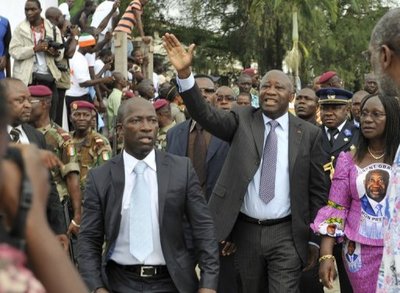
All actions of Ble Goude have been heavily paid by the taxpayers money
Ble Goude has drawn support from youths of Ivory Coast’s minor ethnic group Bebe tribe, the tribe where Gbagbo is from and representing the southern and western parts of the country loyal to Gbagbo.
He has been able to conduct his costly, large-scale works by means which an officially sworn in government could never dream to use formally; violent looting and strong incitement of terror against its political rivals and personnel from international societies.
He has been under UN sanction since 2006 for this notorious violence; actively participating in looting, rape, extra-judicial killings against UN and other international personnel. The sanction includes banning him from traveling abroad and freezing of assets. His nickname had been Gbagbo’s “Street General” because of his ability to draw storms of young Ivorians within hours by television speeches
 In a new development, U.S. State Department Spokesman PJ Crowley has made a statement indicating that opinion is divided among officials in Obama's government concerning the punitive and inhumane pre-trial treatment of alleged Wikileaks whistleblower Bradley Manning.
In a new development, U.S. State Department Spokesman PJ Crowley has made a statement indicating that opinion is divided among officials in Obama's government concerning the punitive and inhumane pre-trial treatment of alleged Wikileaks whistleblower Bradley Manning.
While speaking to a small audience in MIT organized by the Center for Future Civic Media, Crowley was asked what he thought of the treatment of Bradley Manning. According to an attendee at the meeting, Philippa Thomas, Crowley unequivocally denounced the treatment of Manning by the Department of Defense as "ridiculous, counterproductive and stupid."
What did Crowley think, he asked, about Wikileaks? About the United States, in his words, “torturing a prisoner in a military brig”? Crowley didn’t stop to think. What’s being done to Bradley Manning by my colleagues at the Department of Defense “is ridiculous and counterproductive and stupid.” He paused. “None the less Bradley Manning is in the right place”. And he went on lengthening his answer, explaining why in Washington’s view, “there is sometimes a need for secrets… for diplomatic progress to be made”. But still, he’d said it. And the fact he felt strongly enough to say it seems to me an extraordinary insight into the tensions within the administration over Wikileaks.
 Rep. Peter King of New York, who held the first in a series of hearings on radicalization in the American Muslim community on March 10, has a well-known position on WikiLeaks: It’s terrorism. He urged the Treasury Department in January 2011 “to add WikiLeaks and its founder Jullian Assange to the Specially Designated National and Blocked Persons List (SDN List).”
Rep. Peter King of New York, who held the first in a series of hearings on radicalization in the American Muslim community on March 10, has a well-known position on WikiLeaks: It’s terrorism. He urged the Treasury Department in January 2011 “to add WikiLeaks and its founder Jullian Assange to the Specially Designated National and Blocked Persons List (SDN List).”
His letter to the Treasury Department explains his opinion, “The U.S. government simply cannot continue its ineffective piecemeal approach of responding in the aftermath of Wikileaks’ damage. The Administration must act to disrupt the Wikileaks enterprise. The U.S. government should be making every effort to strangle the viability of Assange’s organization.”
Presumably, King would like to see WikiLeaks “strangled” in the way that the Committee on Islamic-American Relations (CAIR) is being cracked down on by the FBI. King explicitly called for Muslim-Americans to reject CAIR, which he said “was named as an unindicted co-conspirator in the terrorist financing case involving the Holyland Foundation.”
In the leadup to this hearing I found it shocking and sad that the mainstream media accepted CAIR’s accusations as if it were a legitimate organization. Thankfully, FBI Director Mueller has ordered the FBI to cease all dealings and contact with CAIR. I would hope that all law enforcement officials would follow the lead of the FBI Director.
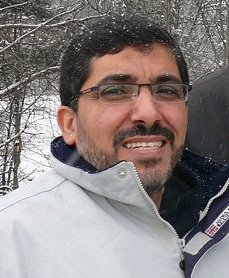 According to the AP, the UN has confirmed that Israel's Mossad kidnapped Gaza's chief power plant engineer and illegally rendered him to an Israeli torture center and then prison, where he is currently held.
According to the AP, the UN has confirmed that Israel's Mossad kidnapped Gaza's chief power plant engineer and illegally rendered him to an Israeli torture center and then prison, where he is currently held.
Maksim Butkevych, spokesman for the United Nations High Commissioner for Refugees in Ukraine, said the agency "suspects Israeli and perhaps Ukrainian security forces had a hand in his disappearance and imprisonment in Israel." (Source: AP)
"We don't know details of his trip from Ukraine to Israel — let's put it this way," said Butkevych. "But unfortunately, what happened looks like a violent abduction and not a legal extradition or any other legal action on the part of authorities." Both the Israeli and Ukrainian Foreign Ministries declined to comment on the U.N. allegations. (Source: AP)

In an 11 page legal rebuttal released on his lawyer's Web site, Bradley Manning describes his experience under "maximum custody" solitary confinement and "prevention of injury watch". See Rebuttal Article 138 Complaint - Quantico (PDF) for full legal rebuttal by Bradley Manning via David Coombs. (Source: The Law Office of David E Coombs)
The legal rebuttal was written in response to the base commander, Colonel Choike's (*see photo left), denial of "Manning's request to be removed from Prevention of Injury Watch and to have his custody classification reduced from Maximum to Medium Detention". The letter details the "arbitrary" and "improper" nature of the US Defense Department's treatment of Manning, including his placement on "suicide watch" after the January 18 Protest at Quantico. (Source: The Law Office of David E. Coombs)
"Suicide Watch" in Response to January 18 17 Quantico Protest
 Demonstrators in downtown Khartoum's Abu Janzeer square were beaten with sticks and truncheons as they protested today for the end of President Omar al-Bashir’s 21-year rule. Reportedly five hundred riot police arrested over 50 protesters today, and beat up others. As WL Central reported, Sudan began protesting for regime change on January 30 and were met with a violent crackdown which resulted in one student dead on the first day. According to Human Rights Watch the students and youth, some as young as 18, were subjected to harsh beatings, electric shocks, and other abuses that amount to torture. Security officials are also implicated in the rape of a female youth activist in February.
Demonstrators in downtown Khartoum's Abu Janzeer square were beaten with sticks and truncheons as they protested today for the end of President Omar al-Bashir’s 21-year rule. Reportedly five hundred riot police arrested over 50 protesters today, and beat up others. As WL Central reported, Sudan began protesting for regime change on January 30 and were met with a violent crackdown which resulted in one student dead on the first day. According to Human Rights Watch the students and youth, some as young as 18, were subjected to harsh beatings, electric shocks, and other abuses that amount to torture. Security officials are also implicated in the rape of a female youth activist in February.
Yesterday, police arrested and beat over 40 women after they attempted to stage a protest in Khartoum’s twin city of Omdurman demanding the authorities cease "violence against women," and protesting the rape and beating of Saffiya Ishaq, who was attacked after the January 30 protests. Ishaq told her story in a video posted to Youtube on February 23, please watch.
Theme by Danetsoft and Danang Probo Sayekti inspired by Maksimer